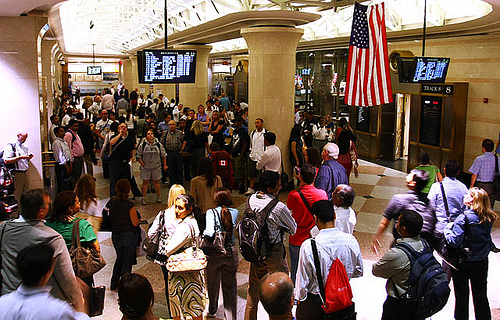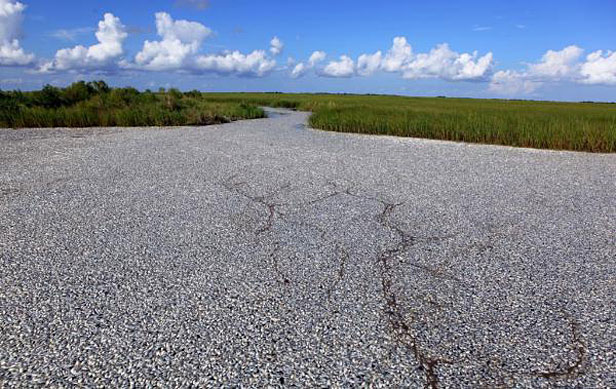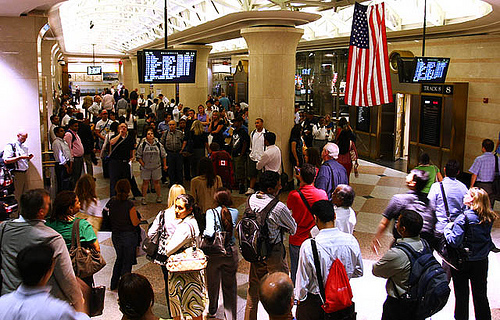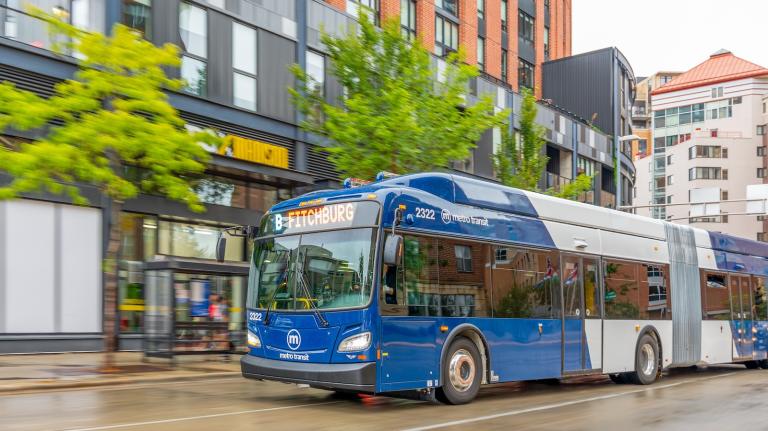 Still waiting for relief at the N.J. Transit concourse in New York’s Penn Station.Photo courtesy John Catral via FlickrJust seven months ago, newly elected New Jersey governor Gov. Chris Christie (R) slashed his state’s transit budget. In so doing, he hiked fares by 22 percent and cut service at a time when the system was carrying record numbers of riders. The move made transit advocates wonder whether the new administration has a clue about the importance of public transportation to the state’s economy.
Still waiting for relief at the N.J. Transit concourse in New York’s Penn Station.Photo courtesy John Catral via FlickrJust seven months ago, newly elected New Jersey governor Gov. Chris Christie (R) slashed his state’s transit budget. In so doing, he hiked fares by 22 percent and cut service at a time when the system was carrying record numbers of riders. The move made transit advocates wonder whether the new administration has a clue about the importance of public transportation to the state’s economy.
Now they have more reason to be nervous.
Over the weekend, New Jersey Transit officials unexpectedly announced a temporary halt to the $8.7 billion project slated to build two new tunnels under the Hudson River. The proposed tunnels, from North Bergen, N.J., to New York’s Penn Station, would double commuter rail capacity. The 30-day moratorium will be used to review costs, the agency’s executive director said, but some fear it will lead to further delays, possibly jeopardizing the future of the project.
Known as ARC (for Accessing the Region’s Core), the tunnel construction is one of the most massive American public works expansions in generations. It addresses congestion and delays on a commuter rail system that has gone from serving 9 million passengers in 1980 to 45 million in 2009.
All those train people aren’t taking transit just to reduce their carbon footprint (although they are doing that nicely). A lot of them are doing it because driving in New Jersey sucks. The state’s congested, decaying roads have been ranked the worst in the nation, and the bridges and tunnels going in to New York are hopelessly clogged.
ARC promises many benefits, according to supporters. It would free more New Jerseyites from the need to drive, making things better for those who have no other choice. It would give more of the state’s residents access to jobs in New York. It would create no-transfer commutes for many riders in northern New Jersey, as well as opening up possibilities for transit-oriented development. “These are all things that New Jersey needs, both environmentally and economically,” said Zoe Baldwin, New Jersey advocate for the Tri-State Transportation Campaign (TSTC).
So why is the New Jersey Chapter of the Sierra Club hailing the delay as “the right course of action”? Jeff Tittel, the group’s chapter director, explained that the project, as now designed, doesn’t meet the region’s needs. “It’s not part of a cohesive transportation plan,” said Tittel. “We want to see a tunnel, but we want to make sure it’s done right.” For the Sierra Club that would mean better integration into the area’s existing rail system and better station design — ideally at a lower cost.
Baldwin argued that there should be a sense of urgency about moving forward. “We need the additional capacity now, not in 10 to 20 years,” she said, adding how troubling it is that “there is no parity” when it comes to review of road projects that carry comparable price tags for the state, such as the widening of the New Jersey Turnpike and the Garden State Parkway.
“This administration is wary not of spending this kind of money, but of spending it on transit,” she said.
A N.J. Transit spokesman quoted in The New York Times seemed to leave the door open for withdrawal of state support for ARC:
Asked whether the state could eventually reconsider the tunnels entirely, NJ Transit spokesman Paul Wyckoff replied: “That’s speculative right now. First we want to see what the numbers show us.”
N.J. Transit did not return our call for comment.
TSTC’s Baldwin said ARC is vital to the region’s economic future. “Review the costs, yes,” Baldwin said. “But review the benefits as well. And make sure the halt in funding is temporary.”
With any luck, after the 30-day timeout, all the stakeholders will be able to see light at the end of the tunnel.




